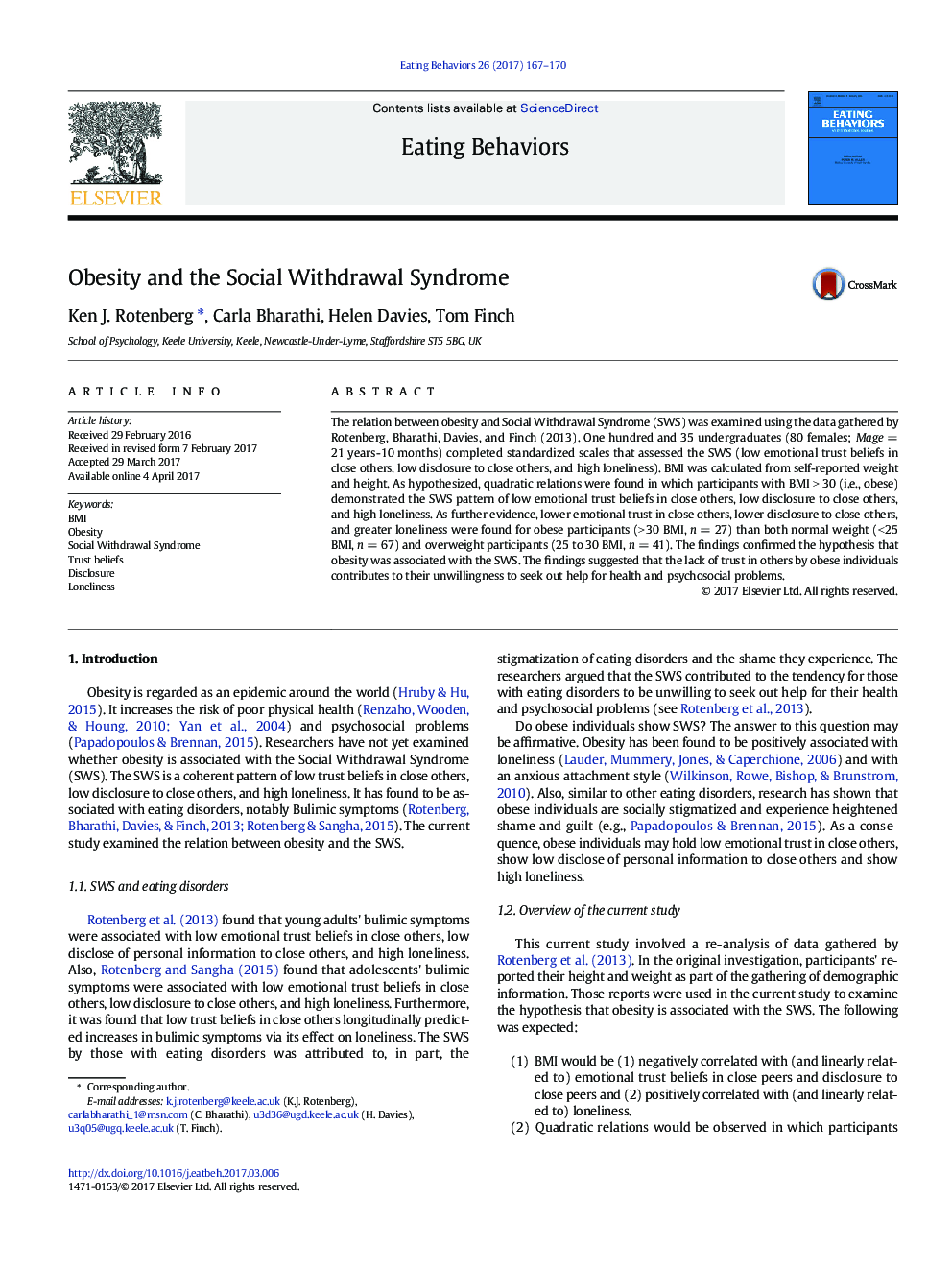| کد مقاله | کد نشریه | سال انتشار | مقاله انگلیسی | نسخه تمام متن |
|---|---|---|---|---|
| 5038815 | 1472877 | 2017 | 4 صفحه PDF | دانلود رایگان |
- The Social Withdrawal Syndrome and BMI were assessed in 137 undergraduates.
- Quadratic relations were found between BMI and SWS as confirmed by categorical analyses.
- Obese individuals showed low emotional trust, low disclosure and high loneliness.
- Similar to other eating disorders, obesity is associated with the Social Withdrawal Syndrome.
The relation between obesity and Social Withdrawal Syndrome (SWS) was examined using the data gathered by Rotenberg, Bharathi, Davies, and Finch (2013). One hundred and 35 undergraduates (80 females; Mage = 21 years-10 months) completed standardized scales that assessed the SWS (low emotional trust beliefs in close others, low disclosure to close others, and high loneliness). BMI was calculated from self-reported weight and height. As hypothesized, quadratic relations were found in which participants with BMI > 30 (i.e., obese) demonstrated the SWS pattern of low emotional trust beliefs in close others, low disclosure to close others, and high loneliness. As further evidence, lower emotional trust in close others, lower disclosure to close others, and greater loneliness were found for obese participants (> 30 BMI, n = 27) than both normal weight (< 25 BMI, n = 67) and overweight participants (25 to 30 BMI, n = 41). The findings confirmed the hypothesis that obesity was associated with the SWS. The findings suggested that the lack of trust in others by obese individuals contributes to their unwillingness to seek out help for health and psychosocial problems.
Journal: Eating Behaviors - Volume 26, August 2017, Pages 167-170
